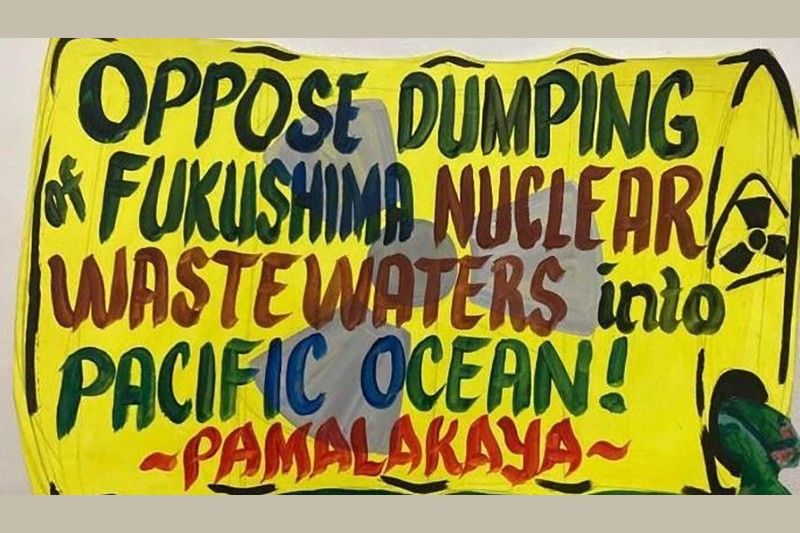Fishers fear Fukushima wastewater release will affect Philippine waters

MANILA, Philippines — Small-scale Filipino fishers on Tuesday opposed the release of treated wastewater from Japan’s damaged Fukushima nuclear plant into the Pacific Ocean, fearing the move will affect the country’s fishing resources and the livelihood of coastal folk.
Japanese Prime Minister Fumio Kishida announced on Tuesday that the gradual release of the more than 500 Olympic swimming pools’ worth of water will begin on Thursday despite resistance from fishing communities and other countries.
“The Japanese government must heed the growing clamor of its neighboring countries to protect the world’s largest and deepest ocean from the toxic radioactive wastes,” said Ronnel Arambulo, vice chairperson of Pambansang Lakas ng Kilusang Mamamalakaya ng Pilipinas (PAMALAKAYA).
PAMALAKAYA said the release of treated wastewater could impact fishing resources, coinciding with the approaching northeast monsoon (amihan). It noted that the resource-rich Philippine Rise, located east of Luzon, is one of the most exposed and vulnerable parts of the country’s seas.
The group also warned that the wastewater from the Fukushima nuclear plant could reach Bicol region and other parts of the southern archipelago.
The Department of Environment and Natural Resources and the Bureau of Fisheries and Aquatic Resources should support the opposition of Filipino fisherfolk, environmentalists, and other experts against this move.
Fishing communities, environmental groups, and nations such as China expressed concerns that the release of treated wastewater will pose environmental and health impacts.
Tokyo Electric Power (TEPCO), the operator of the Fukushima plant, said the water has been diluted and filtered to remove all radioactive substances except tritium, levels of which are far below dangerous levels.
The International Atomic Energy Agency (IAEA) said in July that the release would have a "negligible radiological impact on people and the environment."
In March 2011, a 9.0-magnitude earthquake unleashed a tsunami that left around 18,500 people dead or missing, and overwhelmed cooling systems at the Fukushima Daiichi plant, leading to the worst nuclear catastrophe since Chernobyl.
Since then, operator TEPCO has collected 1.34 million tons of water used to cool what remains of the still highly radioactive reactors, mixed with groundwater and rain that has seeped in. — with report from Agence France-Presse
- Latest































